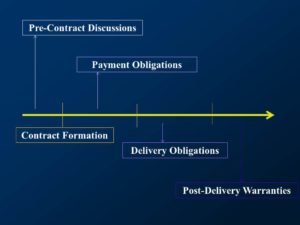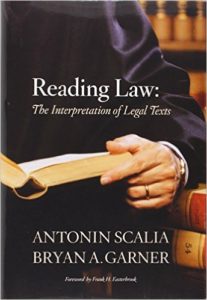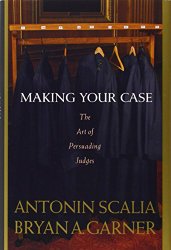An overview of the common law principles and statutory law affecting commercial transactions. Topics include agency, partnerships, corporations, Uniform Commercial Code (UCC), commercial paper, and sales.
“Every man lives by exchanging.” ― Adam Smith
Commerce evolves as humanity evolves.
The types, complexity, and volume of transactions increase as humanity evolves. Importantly, commerce not only enhances the economy, but also has a place in advancing virtue by promoting sustainable, repeat interactions between people for when “. . .people seldom deal with each other. . .they are somewhat disposed to cheat. . . .” Adam Smith, Lectures on Jurisprudence
Commerce also makes people disinclined toward violence to meet economic goals, where:
“Trade is the natural enemy of all violent passions. Trade loves moderation, delights in compromise, and is most careful to avoid anger. It is patient, subtle, and insinuating, only resorting to extreme measures in case of absolute necessity. [Trade makes people] inclined to liberty but disinclined to revolution.” Alexis de Tocqueville, Democracy in America
This course not only strengthens the Practical skills learned in LAW241, but also builds on them by stressing how statutory law is interpreted in the context of the Uniform Commercial Code in our discussion of the transaction cycle of the sale of goods as shown below.

We will also discuss legal cases in the context of problem-solving commercial transaction disputes.

We will strengthen the following skills while arguing legal cases in a team environment:
- I – Identifying the issue(s) to be resolved;
- R – Determining the relevant rule(s) under the circumstances;
- A – Analyzing information under the correct rule(s) by gathering and then filtering for relevant facts;
- Using qualitative and quantitative data analysis where appropriate;
- Making ethical and legal decisions based on legal and data analysis, and then extending those decisions to consider their future potential impacts; and,
- C – Communicating the result of your analysis verbally and in writing to stakeholders.
This course covers certain topics that will be tested in the CPA Exam:
- Business Environment & Concepts (BEC) section
- Regulations (REG) section – the course focus
STAND OUT FROM THE CROWD: ARGUS grant and Independent Study Opportunities
- If a topic particularly interests you, then I will help you apply for an ARGUS grant to research that topic more deeply. Or, maybe an Independent Study is a good option for you.
Innovate – Engage – Impact
The educational tradition imposes learning from above and from outside – adult standards imposed on those who are slowly growing to maturity within the field. Experiential learning instead holds that “there is an intimate and necessary relationship between the process of actual experience and education.” True learning takes place when doctrine dovetails with those positive experiences that lead to future growth.
ENTREPRENEURSHIP FINANCE
Private Equity & Venture Capital Guest Speakers
AU students can apply the analytical skills they learn in class as they listen to live “pitch” meetings for businesses in the greentech industry seeking funding (See Events Listings in this Blog).
Recommended Reading:


Recommended Links:




